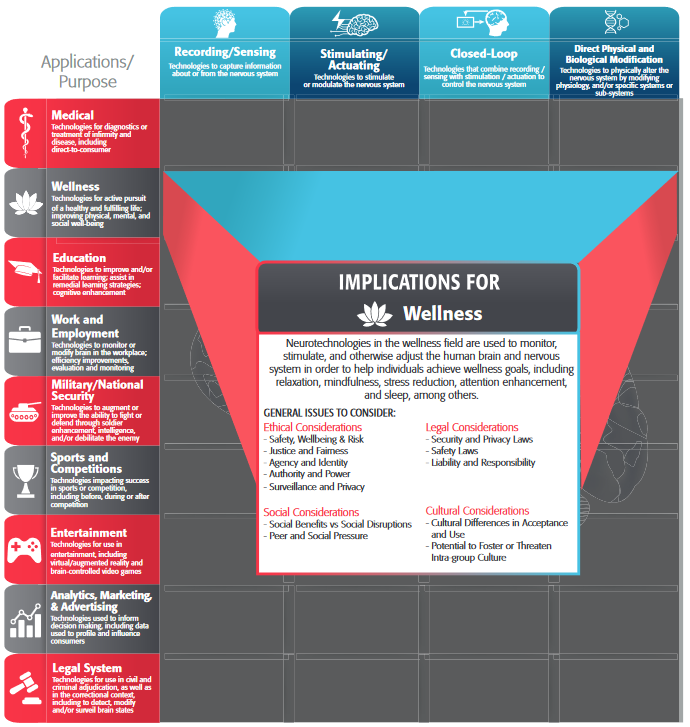The recent acceleration in the emergence and widespread application of artificial intelligence and machine learning (AI/ML) is leading to a fundamental revolution in the way that society functions on all levels across the globe. Whether in wrist-borne sleep and activity monitors, online shopping carts, “smart” mobile devices, or even in our vehicles, AI/ML-enabled intelligent agents are quickly becoming ubiquitous and, as such, fundamental to life experience in the developed world. Public debates have emerged regarding the alternately fortuitous and disastrous potential of advances in such technologies, which are envisioned to enable monitoring and interpretation of the life patterns, precise prediction of the behaviors of individuals and groups, and even performance optimization through explicitly influencing brain states (Yuste et al., 2017). With ever-more intelligent technological capabilities and particularly the increasing availability, modes, and transmissibility of information that can reshape our understanding of the global context and human action within it, we are expectedly rethinking the mechanisms that we employ to train personnel and perform complex team operations.
We propose that future mechanisms can be developed to enhance team performance, and specifically military team performance, for heterogeneous human-intelligent technology teams through technologies that focus on enhancing teamwork, or team states and processes, through individualized information, processing, and behavior for each team member (Mait et al, 2017; pp 15 – 19). We discuss the potential capabilities of these future mechanisms, articulate why we believe these capabilities can be developed, and outline an initial suggestion of the critical scientific questions that must be addressed to enable this future vision. Here, we have integrated a variety of mechanisms to engage the community in providing feedback and novel ideas.



Comments
Welcome to the latest Brain-storm! I’m looking forward to seeing a discussion regarding the scientific and engineering challenges we began to articulate in this paper. Please let us know who’s here and comment on any/all sections of the paper. There are specific calls for comments within subsequent sections as well.
Thank you again IEEE Brain for this opportunity.
We are very interested in hearing the communities insights into these ideas. Please don’t feel limited to commenting on our selected questions and comments, we are looking for you to add additional critical questions and challenges in the discussion sections or upload more detailed discussions!
ML/AI should assist to better communication and service but should not exceed in a direction of replacing human resources completely and make the space empty for employment